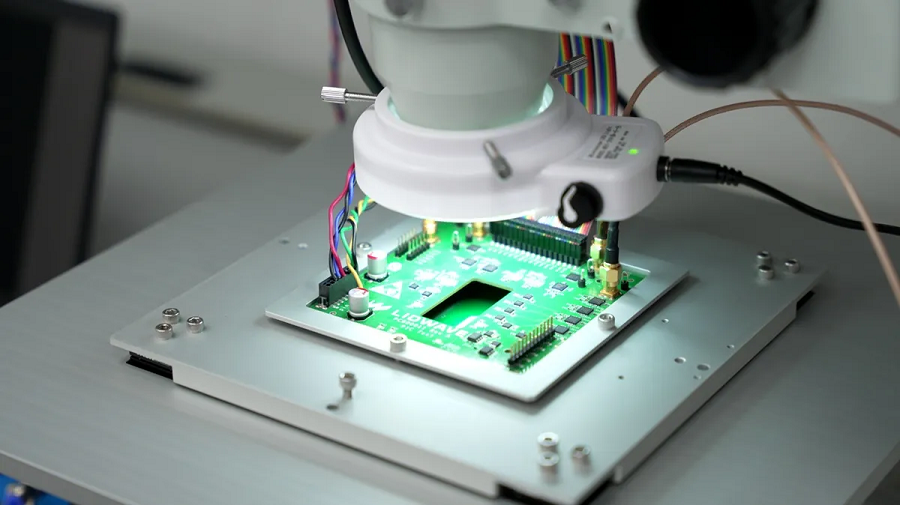 EMERGING TECH
EMERGING TECH
 EMERGING TECH
EMERGING TECH
 EMERGING TECH
EMERGING TECH
Lidwave Ltd., a startup developing lidar chips for systems such as autoumous vehicles, today announced that it has raised $10 million in seed funding.
Jumpspeed Ventures and Next Gear led the investment. Israel-based Lidwave said that the round also included the participation of more than a half dozen other backers including an unnamed Swedish truck maker.
Lidar sensors are used by autonomous vehicles, warehouse robots and certain other systems to navigate their surroundings. The technology is based on the same basic principle as radar, but uses light instead of radio waves to detect objects. A lidar sensor emits millions of invisible laser pulses every second and analyzes the pulses that bounce back to assemble a three-dimensional map of the environment.
Autonomous vehicles typically use the technology in conjunction with other sensors such as cameras. The reason is that lidar equipment has limited accuracy under unfavorable weather conditions. Additionally, using multiple types of sensors helps protect against hardware failures: If a car’s lidar sensors go offline, it can still use its cameras to navigate.
Lidwave’s lidar sensor takes the form of a chip less than half the size of a one-euro coin. Unlike traditional lidar systems, it can operate in rain, fog and snow. Additionally, the company says that its technology is easier to maintain than competing hardware and costs less to manufacture.
Lidar sensors usually comprise multiple discrete components. One part generates the light pulses that the sensor beams into the environment and another picks up those light pulses when they bounce back. There’s also an amplifier, which turns the light into a form that’s easier for the sensor’s other components to process.
Lidwave’s chip doesn’t use separate components for those tasks, but rather integrates everything into the same piece of silicon. The company says that integrated design is what gives its technology an edge over rival sensors.
When a sensor’s light generation and detection features are implemented in separate components, engineers must calibrate the system to avoid errors. Lidwave says that its chip’s integrated design removes that requirement. The chip is also less susceptible to temperature fluctuations than traditional sensors that contain many parts, which further reduces maintenance requirements.
According to Lidwave, another benefit of its technology is that it doesn’t require post-processing software. That’s a type of software used to turn raw lidar measurements into a form a vehicle’s onboard computer can analyze more easily. The less processing is needed to process sensor readings, the less computing hardware a vehicle must carry, which lowers manufacturing costs and power usage.
Lidwave has used its chip to build a lidar sensor called Odem. According to the company, the device can detect objects from a distance of more than 900 feet with a refresh rate of up to 30 frames per second. Lidar sensors collect data on not only the location of an object but also its velocity, which helps improve the accuracy of vehicles’ collision avoidance algorithms.
“Our 4D lidar chip not only sets a new standard for sensor performance but also makes advanced perception technology accessible to the mass market,” said Lidwave co-founder and Chief Executive Yehuda Vidal.
Lidwave will use the proceeds from the newly announced seed round to enhance its technology. The company also plans to invest in go-to-market initiative.
Support our mission to keep content open and free by engaging with theCUBE community. Join theCUBE’s Alumni Trust Network, where technology leaders connect, share intelligence and create opportunities.
Founded by tech visionaries John Furrier and Dave Vellante, SiliconANGLE Media has built a dynamic ecosystem of industry-leading digital media brands that reach 15+ million elite tech professionals. Our new proprietary theCUBE AI Video Cloud is breaking ground in audience interaction, leveraging theCUBEai.com neural network to help technology companies make data-driven decisions and stay at the forefront of industry conversations.